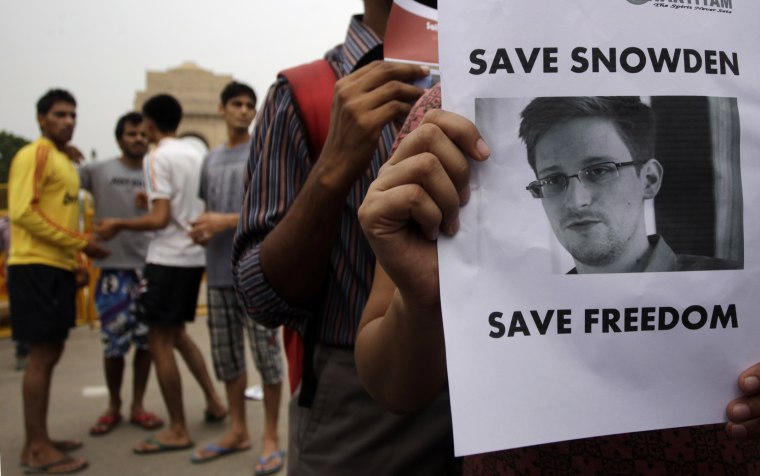For Edward Snowden, the easy part might be over.
After spending weeks in limbo at the Moscow's Sheremtyevo airport and requesting asylum from at least 21 countries, the NSA leaker has found three options for safe haven: Bolivia, Venezuela, and Nicaragua. Now he just needs to get from Eastern Europe to Latin America. Easier said than done when the most powerful country on Earth intends to have you extradited.
If Snowden wants to take up residence in any of the the aforementioned three countries, he'll need to find a route there which doesn't include layovers in the airports of American allies, a category which includes nearly every European government. One possible alternative is a direct flight from Moscow to Havana, with a connecting flight to his future residence. But even then, he would most likely have to cross through American airspace or the territory of one of its allies.
"If you're going to take a commercial flight, I would guess he needs to do a flight that isn't going to go over U.S. or friendly territory," said international criminal defense lawyer Douglas McNabb. Otherwise, America or its ally in the region may deny the plane access to its airspace, or even force it to come to ground.
Former CIA analyst Allen Thomson mapped out a hypothetical route to Venezuela that would only take Snowden's plane through international waters.
"Fly north to the Barents Sea, thence over to and through the Denmark Strait," he told Foreign Policy. "Continue south, steering clear of Newfoundland until getting to the east of the Windward Islands. Fly through some convenient gap between islands and continue on to Caracas. Not more than 11,000 km all in all, which is within the range of a number of charter-able commercial aircraft."
Of course, a specially chartered commercial flight wouldn't be cheap. And the United States may still pursue him over international waters.
"The U.S. has a very aggressive approach with regards to international waters, as well as international airspace," said McNabb. "So the U.S. could treat that as their jurisdiction." American law regarding special maritime territorial jurisdiction is so broad that "one definition in there says that anywhere there is guano, the U.S. has jurisdiction."
"[Snowden's] best option is if the Venezuelan government wants to pick him up in a private plane," said Robert Anello, an attorney who deals with extradition cases. A plane owned by the Venezuelan government is sovereign Venezuelan territory, and so trying to force it down over international airspace would be far riskier than getting in the way of a commercial flight.
"That would be quite an international incident, and I think you'd see other countries sending their jets to protect the Venezuelan jet," said McNabb. If the Venezuelan plane tried to enter the airspace of an American ally, the situation would be even more predictable.
"If France, for example, wanted to deny the Venezuelans with Snowden on board from flying over France's airspace, they certainly could do that," said McNabb. If Venezuela chose to enter France's airspace anyway, "do the French have the right to send up jets and force the plane down? Yeah, I think they could. Could Venezuela treat that as an act of war? Probably. So it could get really very messy."
Should Snowden successfully land in a country where he has been granted asylum, he may receive little more than a temporary reprieve. He would only be safe in that country so long as the government continued to guarantee his security.
"The difficulty with the kind of countries you're talking about is they are countries that have some kind of political upheaval, and what may be good for you today may not be necessarily be a long-term solution," said Anello. For example, American citizen Robert Vesco was able to hide from criminal charges in Costa Rica from 1973 to 1978, be he was eventually forced to go on the run again.
"He ultimately died penniless in a Cuban jail," said Anello.
